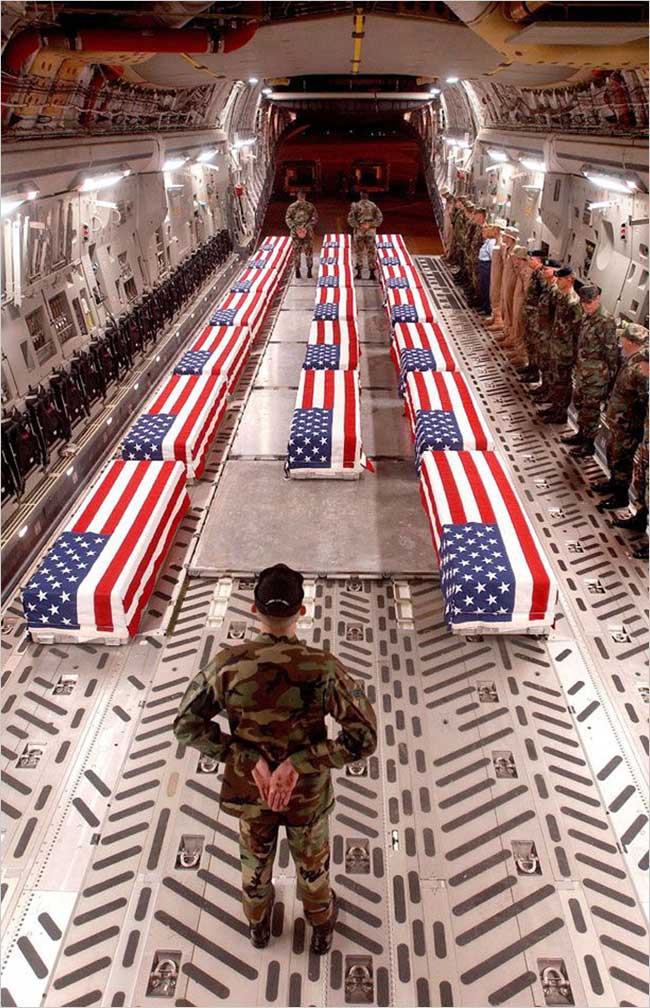At his first televised press conference last week, President Obama received a question about a controversy that, though once debated quite energetically, had seemed for a time to recede into the background as the casualty rate for U.S. soldiers has fallen. The questioner wanted to know whether the new administration would order the Pentagon to reverse its policy of forbidding the publication of photographs showing the return of fallen soldiers from the wars in Iraq and Afghanistan. (President Obama responded by not commenting, since the policy is currently "under review.") Image credit: thememoryhole.org, via Associated Press, NYT, 2/15/2009
Image credit: thememoryhole.org, via Associated Press, NYT, 2/15/2009
The question, and the issue, were covered yesterday by The New York Times in a story and an editorial urging the President to overturn the policy. As the author of the former summarizes the issue, "Part of the debate that has developed turns on whether the return of soldiers is a private or public matter. While families have registered a range of opinions about allowing the news media at Dover, many have maintained that the return of a body is so deeply personal that they should be able to decide whether to keep it private." Above and beyond the questions raised by the difficult question of how to treat the images of what is essentially both a public and a private sacrifice (a soldier dying for his or her country is also lost to his or her family), the debate itself is simply a reminder of the power of images to move arguments.
Recent comments
2 years 29 weeks ago
2 years 44 weeks ago
2 years 44 weeks ago
2 years 50 weeks ago
3 years 4 weeks ago
3 years 4 weeks ago
3 years 4 weeks ago
3 years 6 weeks ago
3 years 6 weeks ago
3 years 6 weeks ago